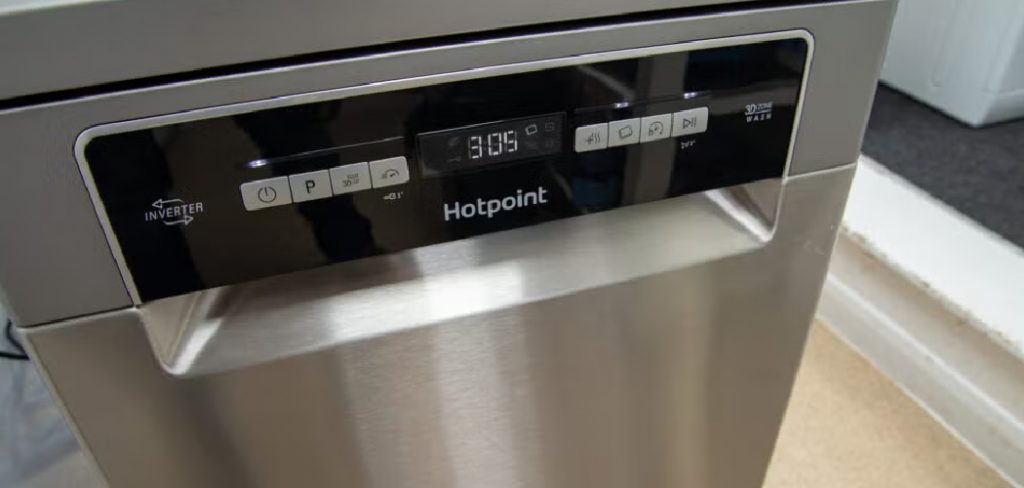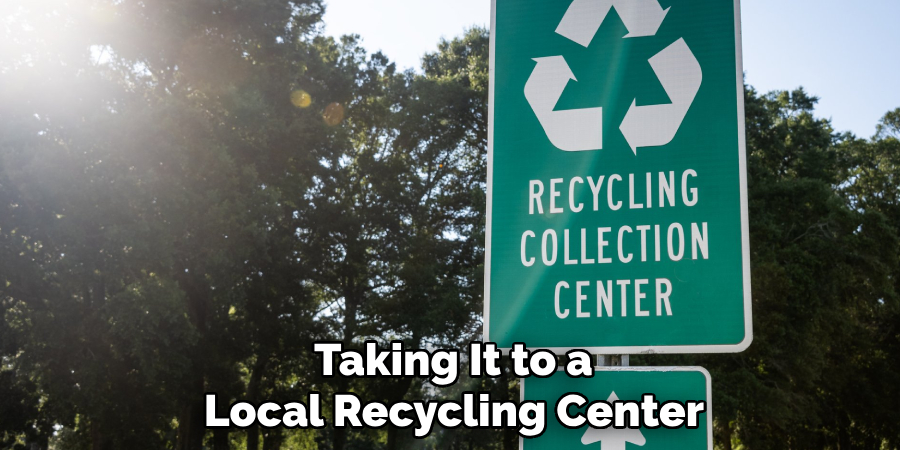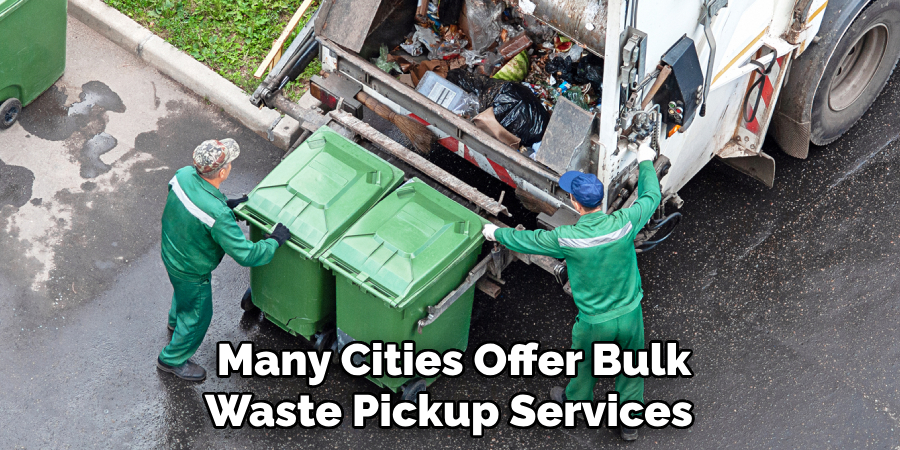Recycling a dishwasher can seem like a challenging task, but it is an important step toward reducing waste and promoting sustainability. Dishwashers are composed of various materials, including metal, plastic, and electronics, all of which can be reused or responsibly disposed of. By properly recycling your dishwasher, you can ensure its components are repurposed and kept out of landfills, contributing to environmental conservation efforts. This guide will walk you through the steps of how to recycle dishwasher effectively.

Why Recycling a Dishwasher is Important
Recycling a dishwasher is crucial for several reasons. Firstly, it helps conserve valuable resources such as metal, plastic, and electronic components, which can be reused in the manufacturing of new products. This reduces the demand for raw materials and minimizes the environmental impact associated with their extraction and processing. Secondly, dishwashers often contain parts that could be harmful to the environment if improperly disposed of, such as refrigerants or electronic components.
By recycling, these materials can be handled safely, preventing pollution and safeguarding ecosystems. Lastly, recycling supports the broader goal of reducing landfill waste, which not only saves space but also mitigates greenhouse gas emissions from decomposing waste. Choosing to recycle a dishwasher is a small yet impactful step toward a more sustainable future.
Assessing Your Dishwasher’s Condition
Before recycling your dishwasher, it is essential to assess its condition to determine the best course of action. Start by inspecting the appliance to see if it is still functional or in need of repair. If the dishwasher is in working condition or can be easily fixed, consider donating it to a local charity, selling it, or offering it to someone in need. This extends the appliance’s life and reduces waste. If the dishwasher is beyond repair, identify whether its components are reusable or recyclable.
Check for valuable materials such as metal or functioning electronic parts that can be salvaged. This step not only helps establish the recyclability of the dishwasher but also ensures that no valuable components go to waste during the disposal process. Proper assessment is crucial for making informed decisions about recycling or reusing your appliance.
10 Methods How to Recycle Dishwasher
1. Contact a Local Recycling Center
One of the most efficient ways to recycle a dishwasher is by taking it to a local recycling center. Many municipal waste facilities accept large appliances and ensure that their materials are processed properly.
Before transporting your dishwasher, call the center or visit their website to confirm if they accept dishwashers, what materials they recycle, and whether they provide pickup services. Some centers may require you to remove hazardous components, such as wiring or electronic boards, before dropping off the appliance.

Recycling centers dismantle dishwashers and separate metals, plastics, and electrical parts, ensuring that they do not contribute to landfill waste.
2. Utilize an Appliance Recycling Program
Many appliance manufacturers and retailers offer recycling programs for old dishwashers when you purchase a new unit. Stores like Home Depot, Lowe’s, and Best Buy often provide haul-away services when delivering a new dishwasher.
These programs ensure that your old dishwasher is properly processed, with materials being reused or melted down for new products. Some programs may even offer discounts or trade-in incentives, making it a cost-effective and environmentally friendly way to dispose of your appliance.
3. Donate to a Charity or Nonprofit Organization
If your dishwasher is still functional but you plan to upgrade, consider donating it to a local charity, shelter, church, or nonprofit organization. Many community programs help low-income families furnish their homes with essential appliances.
Organizations such as Habitat for Humanity’s ReStore, The Salvation Army, and local shelters accept appliance donations, provided the unit is in working condition. Donating not only helps those in need but also reduces landfill waste and promotes sustainable reuse of appliances.
4. Sell or Give Away for Free
Another great way to recycle a dishwasher is by selling or giving it away to someone who needs it. If your dishwasher still works, post it on online marketplaces such as:
- Facebook Marketplace
- Craigslist
- OfferUp
- Nextdoor
You can list the appliance for a low price or mark it as free for pickup to quickly find a new home for it. Many people look for affordable appliances for rental properties, garages, or DIY repair projects, making this an excellent way to extend your dishwasher’s life.

5. Scrap Metal Recycling for Valuable Materials
Dishwashers contain valuable metal components, such as stainless steel, copper wiring, and aluminum, that can be sold to a scrap metal yard.
To maximize your return, dismantle the dishwasher and separate the metal parts from the plastic. Copper wiring, in particular, is highly valuable, and many scrap yards pay for it by weight.
Before selling your dishwasher for scrap, call local metal recycling centers to check their policies and pricing. This method ensures that metals are reused in manufacturing rather than wasted in landfills.
6. Repurpose the Dishwasher for Storage or DIY Projects
A dishwasher’s sturdy shell, racks, and components can be creatively repurposed for home storage or DIY projects. Here are some fun ideas:
- Use the dish racks for organizing tools, shoes, or craft supplies.
- Convert the dishwasher shell into a storage cabinet for garage or basement use.
- Repurpose the silverware holder to store pens, kitchen utensils, or hardware items.
- Turn the dishwasher door into a unique chalkboard by painting it with chalk paint.
With a little creativity, an old dishwasher can be transformed into something useful rather than discarded.
7. Hire a Professional Junk Removal Service
If your dishwasher is beyond repair and you cannot transport it yourself, hiring a junk removal service is an efficient option. Companies like 1-800-GOT-JUNK? or Junk King specialize in removing and properly recycling old appliances.
These services ensure that your dishwasher is dismantled correctly, with recyclable materials salvaged for reuse. While there is usually a pickup fee, it saves you time and effort, making it a convenient way to dispose of the appliance responsibly.
8. Check with Your City’s Bulk Waste Collection
Many cities offer bulk waste pickup services for large appliances. Contact your local waste management department to find out if they have designated appliance collection days.
Some cities may require you to schedule a pickup in advance or pay a small disposal fee. Others might have designated drop-off locations where you can bring the dishwasher for proper recycling.
By using municipal waste collection services, you ensure that your dishwasher is processed according to environmental regulations.

9. Use a Buyback or Trade-In Program
Some dishwasher manufacturers or utility companies offer buyback or trade-in programs to encourage proper recycling. These programs may provide:
- Cash rebates for returning old appliances.
- Discounts on new energy-efficient dishwashers.
- Eco-friendly disposal services to prevent landfill waste.
Check with your local utility company, appliance retailer, or manufacturer to see if they have any ongoing trade-in offers.
10. Break Down and Dispose of Parts Separately
If none of the above methods are available, you can break down the dishwasher and dispose of its parts in an environmentally responsible way.
- Plastic components: Place in your home recycling bin if your local recycling program accepts them.
- Metal parts: Take to a scrap yard for recycling.
- Electronic circuit boards: Dispose of at an e-waste recycling center.
- Hoses and rubber parts: Check if your local facility accepts rubber and mixed materials.
This method ensures that every part of the dishwasher is recycled properly rather than ending up in a landfill.
Maintenance and Upkeep of Your Dishwasher
Proper maintenance and regular upkeep can extend the lifespan of your dishwasher, improve its performance, and save you money on repairs or replacements. Here are some essential tips to keep your dishwasher in top condition:
Clean the Filter Regularly
A clogged filter can reduce your dishwasher’s efficiency and lead to unpleasant odors. Remove the filter (typically located at the bottom of the dishwasher), rinse it under running water, and gently scrub it with a soft brush to remove debris.
Inspect and Clean the Spray Arms
Over time, food particles and limescale can block the spray arms, affecting water flow. Detach the spray arms and clean them thoroughly using warm, soapy water. Use a small tool like a toothpick or fine brush to unclog the holes.
Use Dishwasher-Safe Cleaning Agents
Avoid using regular dish soap, which can create excessive suds. Instead, use high-quality, dishwasher-safe detergents and rinse aids to ensure optimal cleaning performance and to reduce residue buildup.

Run an Empty Cycle with Vinegar
To remove grease, soap scum, and odors, run an empty cycle with a cup of white vinegar placed in a dishwasher-safe container on the top rack. This simple step helps maintain cleanliness and prevents limescale buildup.
Check and Clean the Door Seals
Wipe the rubber door seals with a damp cloth to remove grime and food residue. Cracked or damaged seals should be replaced promptly to prevent water leaks.
Conclusion
Recycling a dishwasher is essential to reduce environmental impact and promote sustainability. Whether you donate, sell, repurpose, or dismantle the appliance for recycling, there are many responsible ways to dispose of an old dishwasher.
By choosing one of these 10 methods, you can help keep valuable materials out of landfills, support community initiatives, and even earn a little money back through scrap recycling or trade-in programs. So, there you have it – a quick and easy guide on how to recycle dishwasher.
Professional Focus
Angela Ervin, a former interior designer turned blogger, specializes in kitchen design and renovations. Through her website, she blends her passion for cooking with design expertise, sharing practical and creative ideas. Known for balancing functionality and beauty, Angela’s insightful content has made her a trusted voice in home design and lifestyle.
About the Author
Angela Ervin, an experienced interior designer and blogger, combines her passion for kitchen renovations with storytelling. Living in Petersburg with her family, she enjoys cooking and testing her projects firsthand. Known for her humor and relatable style, Angela shares creative, functional design insights through her content, making her a trusted voice in home design.
Education History
University: Virginia Commonwealth University
Degree: Bachelor of Fine Arts (BFA) in Interior Design
- Angela’s education at VCU focused on mastering core interior design principles, including spatial planning, color theory, materials selection, and sustainable design practices.
- She gained hands-on experience through studio projects and collaborative design exercises, which honed her ability to create functional and aesthetically pleasing environments.
- Her coursework also emphasized problem-solving and practical applications of design, preparing her for real-world projects like her self-directed kitchen renovations.
- The program’s strong foundation in both technical skills and creative expression shaped Angela’s ability to seamlessly integrate form and function in her work.
